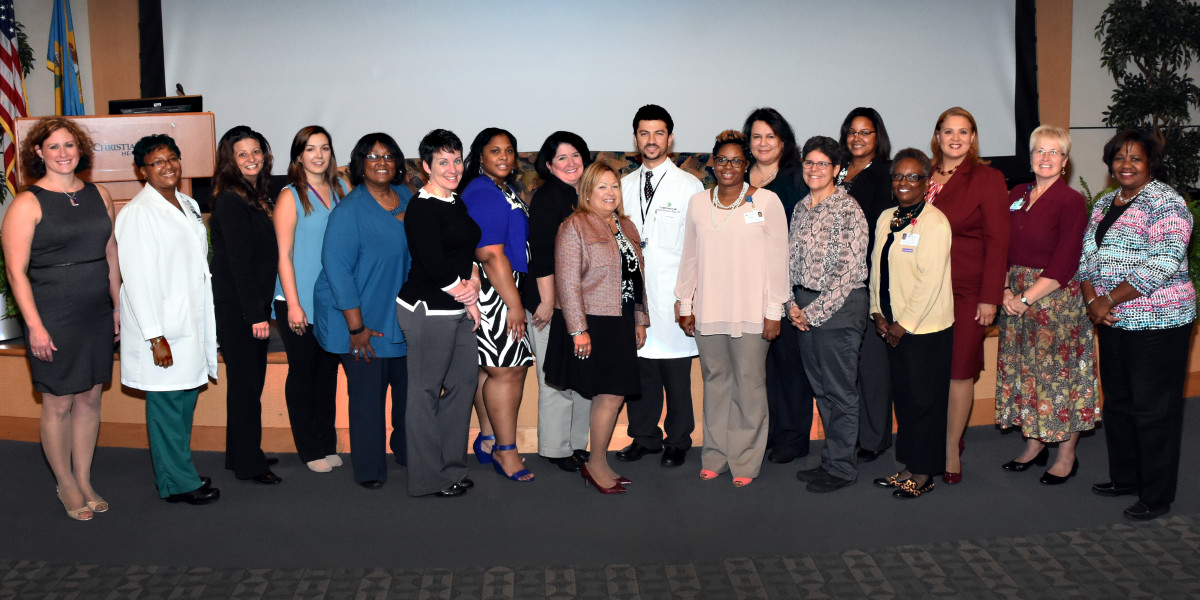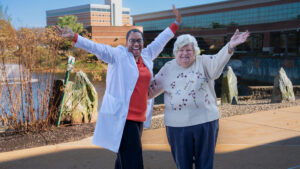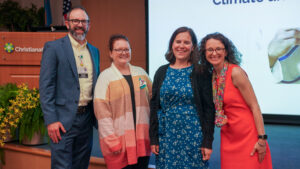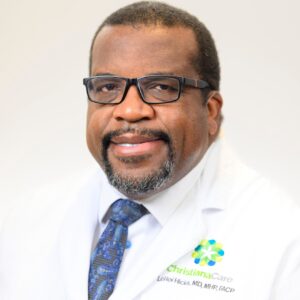Hispanics comprise the largest growing population in the United States, 53 million strong.
Their voice is important — and health systems need to learn how to foster multi-cultural collaborations, said Rosa M. Colon-Kolacko, Ph.D., MBA, CDM, senior vice president, Learning Institute, and chief diversity officer.
“More of our consumer, patients and more of our colleagues are Hispanic,” she said. “Understanding our culture is important so we can respectfully partner and continue to build an inclusive health system and a society that can promote health.”
In observance of National Hispanic Heritage Month, a panel discussion on Oct. 6 focused on ways to promote respect and partnerships with Hispanic colleagues and patients. Dr. Colon-Kolacko, a Latina herself, served as moderator.
Panelists included: Andrea Huertas, BSN, MBA, clinical director, Christiana Care VNA; Jacqueline Ortiz, MPhil, director, Cultural Competence and Language Services; Luisa Ortiz-Aponte, program manager, Healthy Family/Promotora, Helen F. Graham Cancer Center; and Adrian Quesada-Rojas, M.D., Department of Obstetrics and Gynecology.
Huertas recalled growing up in a large, close-knit family headed by her Portuguese mother and Puerto Rican father. She was the first in her family to go to college, embracing emerging opportunities for education for Hispanics.
“Twenty-five years ago, I was a minority and that was a leg up,” she said.
Dr. Quesada-Rojas, who grew up in Costa Rica, came to the United States to enhance his medical education. At first, he struggled with speaking English.
“Women in Labor and Delivery would look at me and say ‘go get me a doctor,’” he recalled.
He worked hard to perfect his English. At the same time, his fluency in Spanish enabled him to communicate effectively with Latina patients. “Speaking to someone in her own language opens the door to help,” he said.
Ortiz-Aponte also learned that speaking Spanish removes barriers to communication with the patients she serves as a community education and outreach worker.
“I let the people explain what they want, what they need,” she said. “That way we can connect them with resources that can help.”
Asking patients how they would like to be treated is an essential component of cultural competency, noted Ortiz.
“It’s helping people to empathize with folks who may be different,” she said. “Making that connection is the challenge.”
Ortiz was born in the U.S. to parents who came from Argentina. She began her career in sociology but soon started volunteering to work in medical interpreting. Today, she is responsible for Christiana Care’s growing Language Services team of qualified medical interpreters.
“My career changed when I followed my heart,” she said.
Maria Cabrera, Wilmington’s first Hispanic councilwoman, also spoke about the importance of events that promote Latin culture and awareness.
“It is an opportunity to teach people who we are and how do we contribute,” she said.
The event is part of a series celebrating diversity hosted by Christiana Care’s Learning Institute and Multicultural Heritage Committee. The panel was held at the John H. Ammon Medical Education Center with video conferencing to the Gateway Center at Wilmington Hospital.



